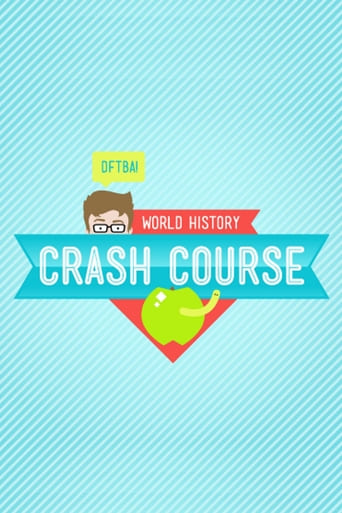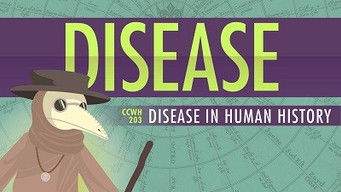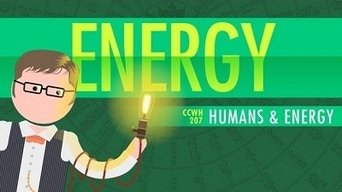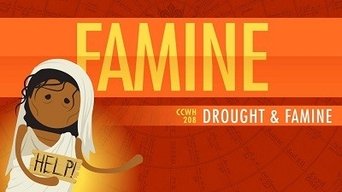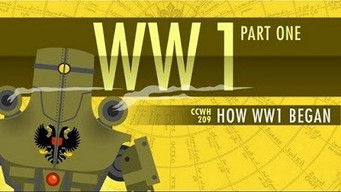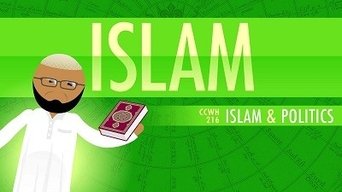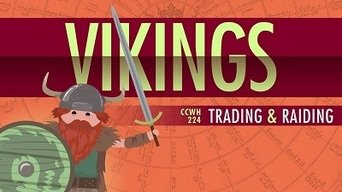Crash Course World History (2012)
Seasons & Episode

In which John Green teaches you about war! Specifically, John talks about whether humanity is naturally warlike, hard-wired to kill, or if perhaps war is a cultural construct. John will talk about the Hobbes versus Rousseau debate, the effects that war has on human social orders, and the effects that war has on individuals. So is war human nature? Watch and find out what we have to say about it.
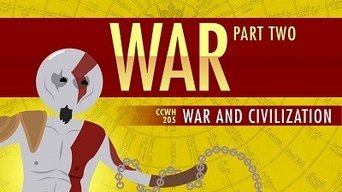
In which John Green investigates war, and what exactly it may or may not be good for. Was war a result of human beings organizing into larger and more complex agricultural social orders, or did war maybe create agriculture and "civilization?" It's hard to know for sure, but it's sure fun to think about.

In which John Green teaches you about the Little Ice Age. The Little Ice Age was a period of global cooling that occurred from the 13th to the 19th centuries. This cooling was likely caused by a number of factors, including unusual solar activity and volcanic eruptions. The Little Ice Age greatly impacted human social orders, especially during the 17th century. When the climate changed, and the weather became unpredictable, the world changed profoundly. Poor harvests led to hunger, which led to even less productivity, which even resulted in violent upheaval in a lot of places. All this from a little change in the temperature? Definitely.
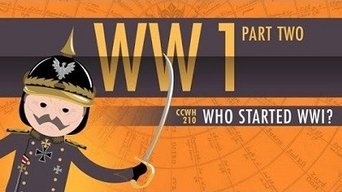
In which John Green teaches you WHY World War I started. Or tries to anyway. With this kind of thing, it's kind of hard to assign blame to any one of the nations involved. Did the fault lie with Austria-Hungary? Germany? Russia? Julius Caesar? One thing we can say for sure is that you can't blame the United States of America for this one. Woohoo! Well, you can hardly blame the US.
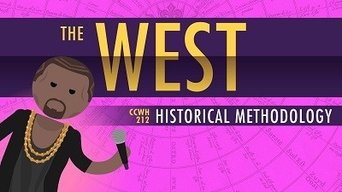
In which John Green talks about the methods of writing history by looking at some of the ways that history has been written about the rise of the West. But first, he has to tell you what the West is. And then he has to explain the Rise of the West. And then he gets down to talking about the different ways that historians and other academics have explained how the West became dominant in the world. He'll look at explanations from Acemoglu and Robinson's "Why Nations Fail," Francis Fukuyama's "The Origins of Political Order," and Ian Morris's "Why the West Rules, for Now."
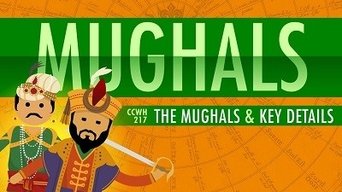
In which John Green teaches you about the Mughal Empire, which ruled large swaths of the Indian Sub-Continent from 1526 to (technically) 1857. While John teaches you about this long-lived Muslim empire, he'll also look at the idea of historical reputation and how we view people from history. Namely, he'll look at the reputations of Mughal emperors Akbar I and Aurangzeb. Traditionally, Akbar I is considered the emperor that made the Mughal Empire great, and Aurangzeb gets the blame for running the whole thing into the ground and setting it up for decline. Is that really how it was, though? It turns out, it's complicated.
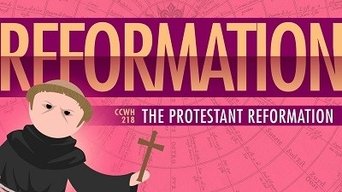
In which John Green teaches you about the Protestant Reformation. Prior to the Protestant Reformation, pretty much everyone in Europe was a Roman Catholic. Not to get all "great man," but Martin Luther changed all that. Martin Luther didn't like the corruption he saw in the church, especially the sale of indulgences, so he left the church and started his own. And it caught on! And it really did kind of change the world. The changes increased literacy and education, and some even say the Protestant Reformation was the beginning of Capitalism in Europe.
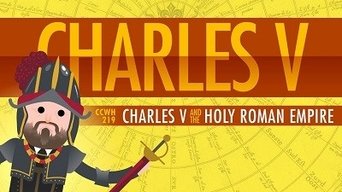
In which John Green teaches you about the Holy Roman Empire by teaching you about Charles V.

In which John Green teaches you about World War II, and some of the causes behind the war. In a lot of ways, WWII was about resources, especially food. The expansionist aggression of both Germany and Japan was in a lot of ways about resources. There were other reasons, to be sure, but the idea that the Axis needed more food can't be ignored.

In which John Green teaches you about the Democratic Republic of the Congo, which used to be Zaire, which used to be The Belgian Congo, which used to be the Congo Free State, which used to be the region surrounding the Congo River Basin in central Africa. So the history of this place is a little convoluted. The history of Congo is central to the history of central Africa, and the Congo Wars embroiled neighboring countries like Uganda and Rwanda. John will talk you through the history of Congo and the region.

In which John Green teaches you about water! So, we talk about resources a lot on Crash Course, and today is no exception. It turns out people can't live without water, which means it's absolutely necessary for civilization. Today John talks about water in the context of classical civilizations, but not like Greece or Rome or something. We're talking about the Maya civilization in Central America, and the Khmer civilization in what is now Cambodia. So this is an awesome video, OK?

In which John Green teaches you about the conflict in Israel and Palestine. This conflict is often cast as a long-term beef going back thousands of years, rooted in a clash between religions. Well, that's not quite true. What is true is that the conflict is immensely complicated, and just about everyone in the world has an opinion about it. John is going to try to get the facts across in under 13 minutes.

In which John Green teaches you about nation-building and nationalism in Latin America. Sometimes, the nations of Latin America get compared to the nations of Europe and are found wanting. This is kind of a silly comparison. The rise of democratic, economically powerful nations in Europe came about under a very different set of circumstances than the way nations arose in Latin America, so the regions are necessarily a lot different. But why? John will explore whether it was a lack of international war which impeded Latin America's growth, which sounds like a crazy thing to say, but you should hear him out.
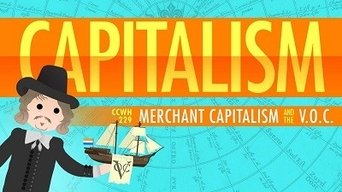
In which John Green teaches you about the Vereenigde Oostindische Compagnie, doing business as the VOC, also known as the Dutch East India Company. In the 16th and 17th centuries, the Dutch managed to dominate world trade, and they did all through the pioneering use of corporations and finance. Well, they did also use some traditional methods like violently enforced monopolies, unfair trade agreements, and plain old warfare. You'll learn how the Dutch invented stuff like joint stock corporations, maritime insurance, and futures trading. Basically, how the Dutch East India Company crashed the US economy in 2008. I'm kidding. Or am I?
Watch Trailer
Free Trial Channels


